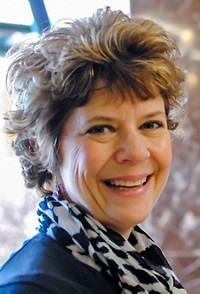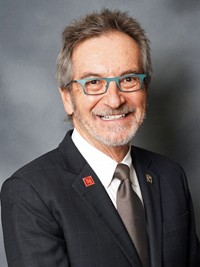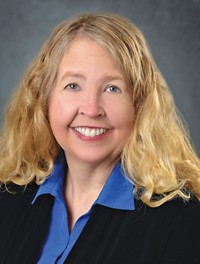Advertisement
Grab your lab coat. Let's get started
Welcome!
Welcome!
Create an account below to get 6 C&EN articles per month, receive newsletters and more - all free.
It seems this is your first time logging in online. Please enter the following information to continue.
As an ACS member you automatically get access to this site. All we need is few more details to create your reading experience.
Not you? Sign in with a different account.
Not you? Sign in with a different account.
ERROR 1
ERROR 1
ERROR 2
ERROR 2
ERROR 2
ERROR 2
ERROR 2
Password and Confirm password must match.
If you have an ACS member number, please enter it here so we can link this account to your membership. (optional)
ERROR 2
ACS values your privacy. By submitting your information, you are gaining access to C&EN and subscribing to our weekly newsletter. We use the information you provide to make your reading experience better, and we will never sell your data to third party members.
Policy
Welcome To The International Year Of Chemistry!
by Nancy B. Jackson
January 3, 2011
| A version of this story appeared in
Volume 89, Issue 1
It is a distinct honor to serve as president of the American Chemical Society, especially during this most exciting year for chemistry. The International Year of Chemistry (IYC 2011) is an excellent window of opportunity for us—both individually as chemists and collectively as ACS—to communicate the importance of chemistry to the public. We can also hold up ACS as an international model of innovation, collaboration, and inclusion.
As chemists and chemical engineers, we are intimately aware that chemistry is essential to the developments and innovations that we need to make in energy, sustainability, and our economy—all issues that are very much in the minds of people everywhere. IYC 2011 is our opportunity to help the rest of the world understand the crucial role chemistry plays in meeting these challenges.
ACS is an extraordinary institution. It is a large, vital, and diverse organization with a dedicated volunteer base that is the envy of the nonprofit world. Our size makes us influential, and our technical communications and ability to bring people together make us prestigious.
The society has played an enormous role throughout every step of my career development. When I graduated with my bachelor’s degree in chemistry and didn’t have any idea what I wanted to do or could do, I enthusiastically read ACS career and education literature and followed all the advice I found there. I learned about my leadership abilities while serving as chair of the national Younger Chemists Committee. I attended and organized many research symposia as a member and leader of my technical division, the Industrial & Engineering Chemistry Division, and became engaged in policy issues, such as involving I&EC in fashioning “Technology Vision 2020: Report of the U.S. Chemical Industry,” a forward-looking study on the research needs of the U.S. chemical industry in the 1990s. As I became involved in international issues, the Committee on International Activities opened doors for me. The way in which ACS embraces and supports diversity within our profession has always helped me feel included. I want ACS to continue to reach out and help chemical scientists in the future as much as I have been helped.
As a career chemical scientist and a 31-year member of ACS, I often think about what we as a society stand for and who we represent, especially whenever I have the opportunity to publicly represent ACS. Each word in the name of our association has great meaning and represents important goals for our profession.
AMERICAN. As a society, we are still primarily an American institution with a special responsibility to address the needs of the community of chemical scientists living and working in the U.S. Many American scientists have concerns about scientific education, industrial manufacturing, and the R&D base in the U.S.
Recently, the World Economic Forum ranked the U.S. 48th out of 133 developed and developing nations in quality of math and science instruction. As the Oct. 26 New York Times editorial page headline noted, “48th Is Not a Good Place.” Additionally, the National Academies announced last fall that the U.S. ranks 27th out of 29 wealthy countries in the proportion of college students with degrees in science or engineering.
The state of the U.S.’s science education is a harbinger of even more economically troubling times for our nation if we continue on our present path.
The unemployment rate for ACS members in 2009 was the highest ever recorded, and preliminary data indicate that 2010 will be similar. Much of this unemployment is a result of the pharmaceutical industry closing research facilities and moving manufacturing abroad. The moves of the international pharmaceutical industry eerily echo those of the information technology industry 20 years ago. If pharmaceuticals continue on the same path as information technology, America will soon be without a pharmaceutical industry and without many U.S.-citizen graduate students who are educated in the field.
The entire U.S. manufacturing base has been shrinking for years. The pharmaceutical industry is just the latest enterprise to begin to move abroad. Most disturbing about the changes in pharmaceuticals is that R&D and intellectual development, as well as manufacturing, are moving offshore. Although the U.S. still has the world’s best entrepreneurial spirit and capability, it is difficult—probably impossible—for entrepreneurial technical companies to spring forth without an R&D and manufacturing environment to spawn them. The lack of science and engineering graduates to hire into new companies will also prove challenging for new science-based industries.
FAMILY MATTERS

All The President’s Men
Jim is principal investigator of a solar fuels energy program at Sandia National Laboratories, and he is an ACS member. Chris is an avid soccer player and fan of soccer teams around the world. Jackson is drum major of his high school band, as well as a jazz band member, and is fascinated by the ancient history of countries surrounding the Mediterranean Sea.
Free time for Nancy and Jim is often spent at soccer games or band performances. Both sons travel internationally with their mother as much as possible.
Identifying, communicating, and advocating what must be done to improve the U.S. industrial R&D and manufacturing base, as well as increasing chemical science and engineering jobs, needs to be our number one domestic priority at ACS.
Increasing chemical science jobs in the U.S. requires improvements in a wide range of areas in which ACS has expertise: science, technology, engineering, and mathematics (STEM) education; career development; and public policy. Although I intend to champion this effort as ACS president, it will require an effort much bigger than one president can handle and will need a commitment much longer than one presidential term can accommodate. The ACS Board of Directors and relevant society committees must work together to identify what ACS can do, what the government must do, and how we can communicate to the public and our elected officials the urgency of what is necessary to rebuild our R&D and manufacturing jobs in the U.S. The board has taken a first step in this direction at their December 2010 meeting by approving the policy statement “A Competitive U.S. Business Climate: The Role of Chemistry.”
Our federal government faces many real and serious financial constraints. However, as Norman R. Augustine, aeronautical engineer, former chief executive officer of Lockheed Martin, and chair of the National Academies committee that developed the report “Rising Above the Gathering Storm: Energizing and Employing America for a Brighter Economic Future,” said, “When it becomes necessary to reduce the weight of an airplane, you don’t accomplish it by throwing off the engine.”
CHEMICAL. Science is global. Chemistry is global. Chemistry and science in general have become global enterprises, not just because countries such as China, India, and Singapore have significantly increased their investment in STEM education and scientific R&D but also because many of the greatest challenges requiring science and engineering solutions are global problems. Consider, for instance, the issues of energy and sustainability and their worldwide environmental, agricultural, and economic implications. We need to be involved with the global chemical community in using the chemical sciences to address these global challenges.
To serve our members—those located both inside and outside the U.S.—we need to recognize that chemistry, as well as all science and engineering disciplines, is now a global enterprise. To remain at the forefront of the chemical sciences means knowing and taking advantage of chemical R&D from all over the world. Although we must devote significant efforts to improving the U.S.’s chemical education, jobs, and public policy to remain at the forefront of chemistry and to serve our members, all of us—U.S. citizens or not—must be connected to the global chemical community and enable scientific interaction on a global level.
It is a delicate balance between American and international at ACS, but we must begin to find that balance. Without outreach and access to the global chemical community, we cannot be the best chemical scientists possible. Competition is increasing in the chemical sciences and in all sciences. If we want ACS to be the best at chemical leadership, then we need to be the best at global chemical leadership. With our publications and our members, we have an excellent head start.
As we consider the opportunities and challenges of international chemical leadership, ACS should embrace a global perspective by expanding its philanthropic efforts. ACS has a long history of helping those who are less fortunate. Whether we are talking about the thousands of lives that have been influenced by Project SEED, the recipients of the ACS Scholars Program, or the dedicated chemists who have made green chemistry much more than an academic enterprise, ACS has worked together as a community to benefit the public.
These philanthropic efforts have given ACS much in return, including enthusiastic and creative young chemists and a more diverse workforce. Making philanthropic efforts global would also bring us many benefits. By assisting developing countries in scientific education and sustainable development, we can nurture relationships between our members and creative and talented chemists from different cultures, provide meaningful opportunities for our younger chemists to help change the world, and positively impact Earth itself.
These don’t need to be expensive ACS programs; they can involve assisting chemists, young and old, with spending a semester abroad teaching chemistry (with local universities supporting living expenses) or sharing ACS chemical laboratory safety materials in a variety of languages (even beyond what we do now). Service opportunities would attract the community-minded, “I want to make a difference” young chemists and improve the well-being of many poor countries. If we want ACS to be the best at chemical leadership, then what better way to reach this goal than to improve the poorest of countries through the transforming power of chemistry?
SOCIETY. As the American Chemical Society, we recognize that we can accomplish more together than we can as individuals. We need to work together now more than ever. We need to communicate to the public the importance of investing in STEM education. We need to communicate the central role that chemistry plays in developing a sustainable future and how chemical research is crucial for solving our global problems involving energy, food, water, and health. We need to communicate that R&D is a crucial investment in the long-term health of our economy. The importance of such efforts is underscored this year by the fact that communication to the public about the essential role of chemistry is the primary goal of IYC 2011.
ACS already has many programs that communicate chemistry to the public: ACS PressPac, Chemistry Ambassadors, and local sections’ public relations committees. ACS also has many venues for communicating with the public: National Chemistry Week, Chemists Celebrate Earth Day, the U.S. National Chemistry Olympiad, Kids & Chemistry, National Historic Chemical Landmarks, and Science Cafés. We also have Chemical & Engineering News, which routinely carries a diverse lineup of insightful, engaging news and feature articles that appeal to a wide range of people, not just chemists.
Nevertheless, we need more and better communication of chemistry and science to the public. Although I don’t know the best way to take advantage of all the society’s communication potential for reaching the public, I would like to put together a task force—including outside experts in communicating science to the public—that would look at the resources we have and brainstorm how we might use them to increase outreach to the general public. As I have said on more than one occasion, and will continue to point out, nothing is more important to the health of our profession than communicating effectively with the public. It is time that we resolve to take whatever steps are necessary to inform the public of the importance of the central science of chemistry. IYC 2011 is the perfect venue for each of us to start talking to the public about the value of chemistry in our lives.
I am very excited about this coming year and the opportunity to represent you and our profession. I look forward to working with our excellent ACS staff and dedicated membership to find even more ways of opening the doors of opportunity for all who are interested in working in the field of chemistry, to continue building strong partnerships with our international colleagues, and to find innovative ways of communicating with the public about the excitement, wonder, and benefits of chemistry. I welcome your comments and thoughts. You can reach me at president@acs.org.







Join the conversation
Contact the reporter
Submit a Letter to the Editor for publication
Engage with us on Twitter